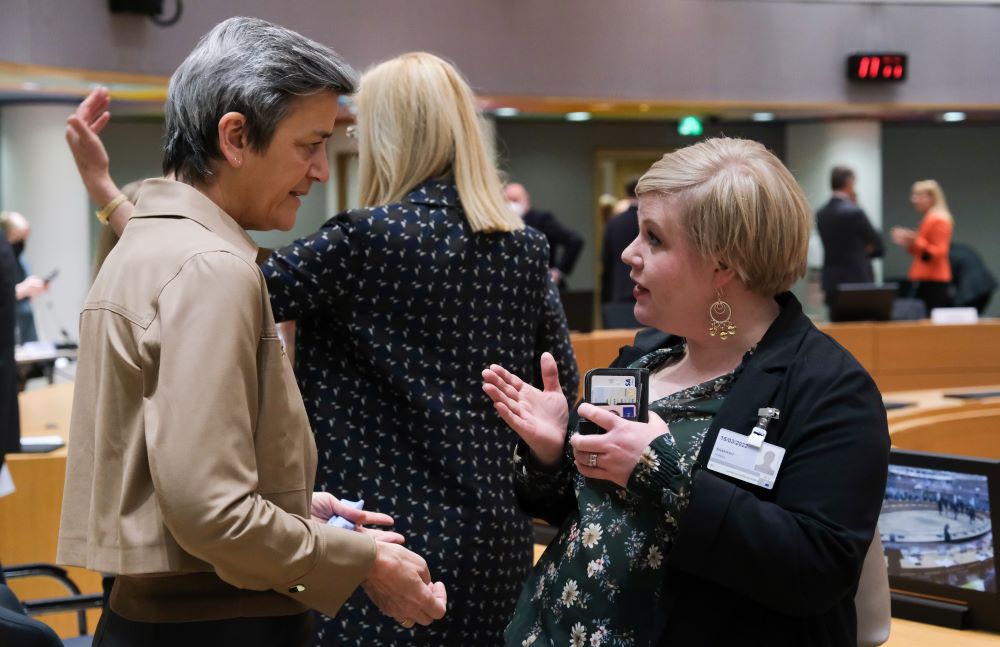EU meetings
Finance ministers reach agreement on Carbon Border Adjustment Mechanism

On Tuesday 15 March, the EU’s finance ministers reached an agreement in the Economic and Financial Affairs Council on establishing a Carbon Border Adjustment Mechanism. Minister of Finance Annika Saarikko represented Finland at the meeting in Brussels.
The Carbon Border Adjustment Mechanism also prevents the increase of emissions outside the EU
The meeting reached a general approach on the European Commission’s proposal for a Regulation of the European Parliament and of the Council on a Carbon Border Adjustment Mechanism (CBAM). The CBAM is part of the Fit for 55 Package presented by the European Commission last July to implement the objectives set in the European climate law to reduce net greenhouse gas emissions and promote the transformation of the EU into a carbon-neutral society by 2050.
The CBAM is intended to prevent carbon leakage, i.e. the transfer of production outside the EU to countries with more lax environmental standards in situations where the EU is intensifying its climate measures. It is also intended to promote the wider use of carbon pricing and the intensification of climate measures in third countries as well as to complement existing EU carbon pricing policies, in particular the EU emissions trading scheme.
The CBAM will impose a payment on products coming from outside the EU that is the same as the one that must be paid for corresponding products manufactured inside the EU within the scope of EU emissions trading. The mechanism would apply to five product groups, i.e. cement, steel and iron, aluminium, fertilisers, and electricity. Full compatibility with WTO rules and with the EU’s other international commitments is a key consideration in the design of the mechanism. The CBAM is also intended to be one of the EU's three new own resources, which were the subject of a separate European Commission proposal on 22 December 2021.
The proposal for a regulation now approved at the meeting includes some amendments to the proposal issued in July 2021. The main amendments concern the administrative model for the mechanism, i.e. official duties have been transferred from the Member States to the EU level.
Preparations for the implementation of the first stage of the proposal must be completed by the end of 2022, because the regulation is due to enter into force at the beginning of 2023.
Inquiries:
Ilari Valjus, Senior Specialist, ilari.valjus(at)gov.fi, tel. +358 295 530 093
The Economic and Financial Affairs Council (Ecofin) is one of the configurations of the Council of the European Union. Ecofin makes decisions on EU legislative proposals within its remit, usually in cooperation with the European Parliament. It is also responsible for coordinating the economic policies of EU Member States. Ecofin is composed of the Member States’ economic and financial affairs ministers.